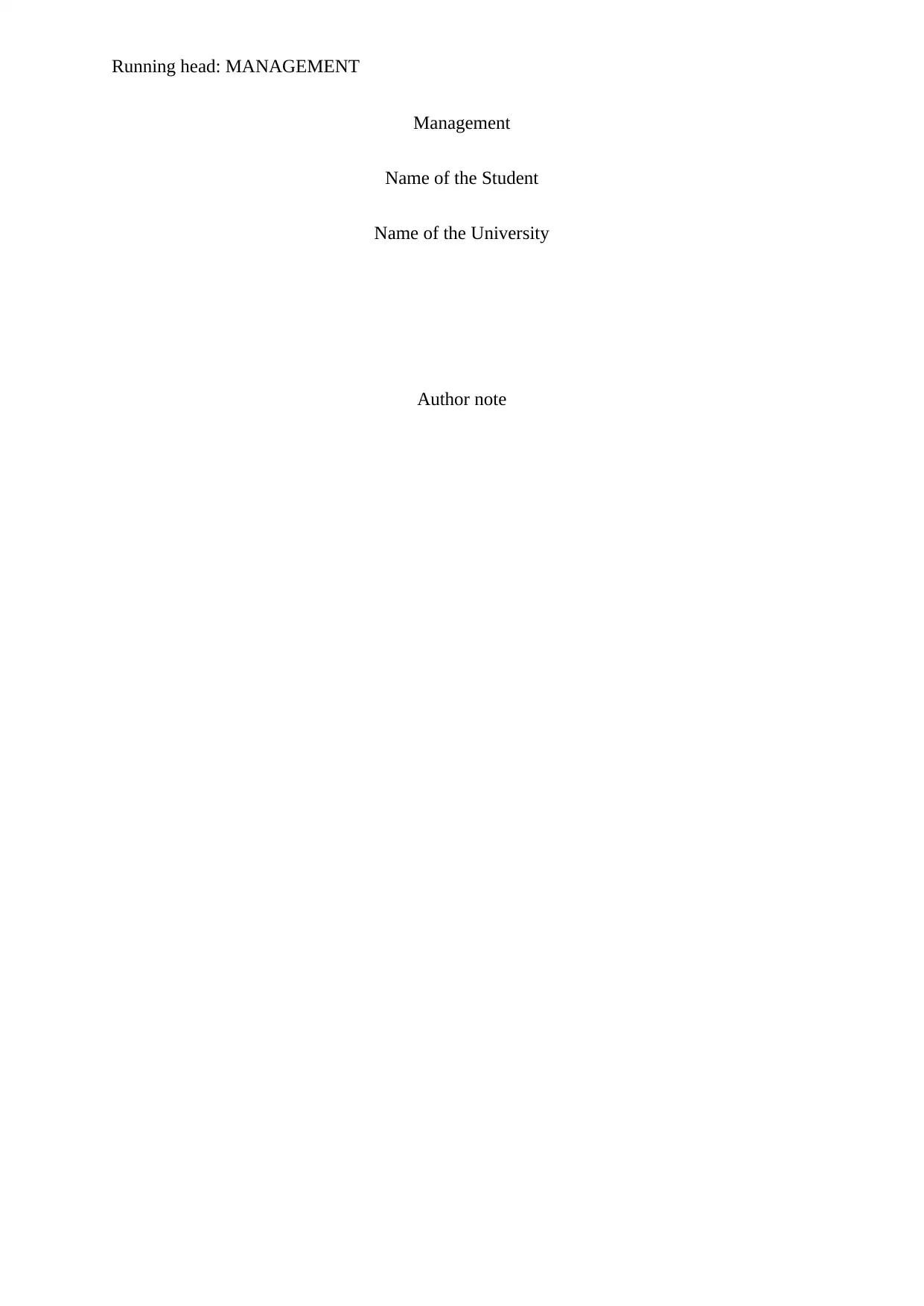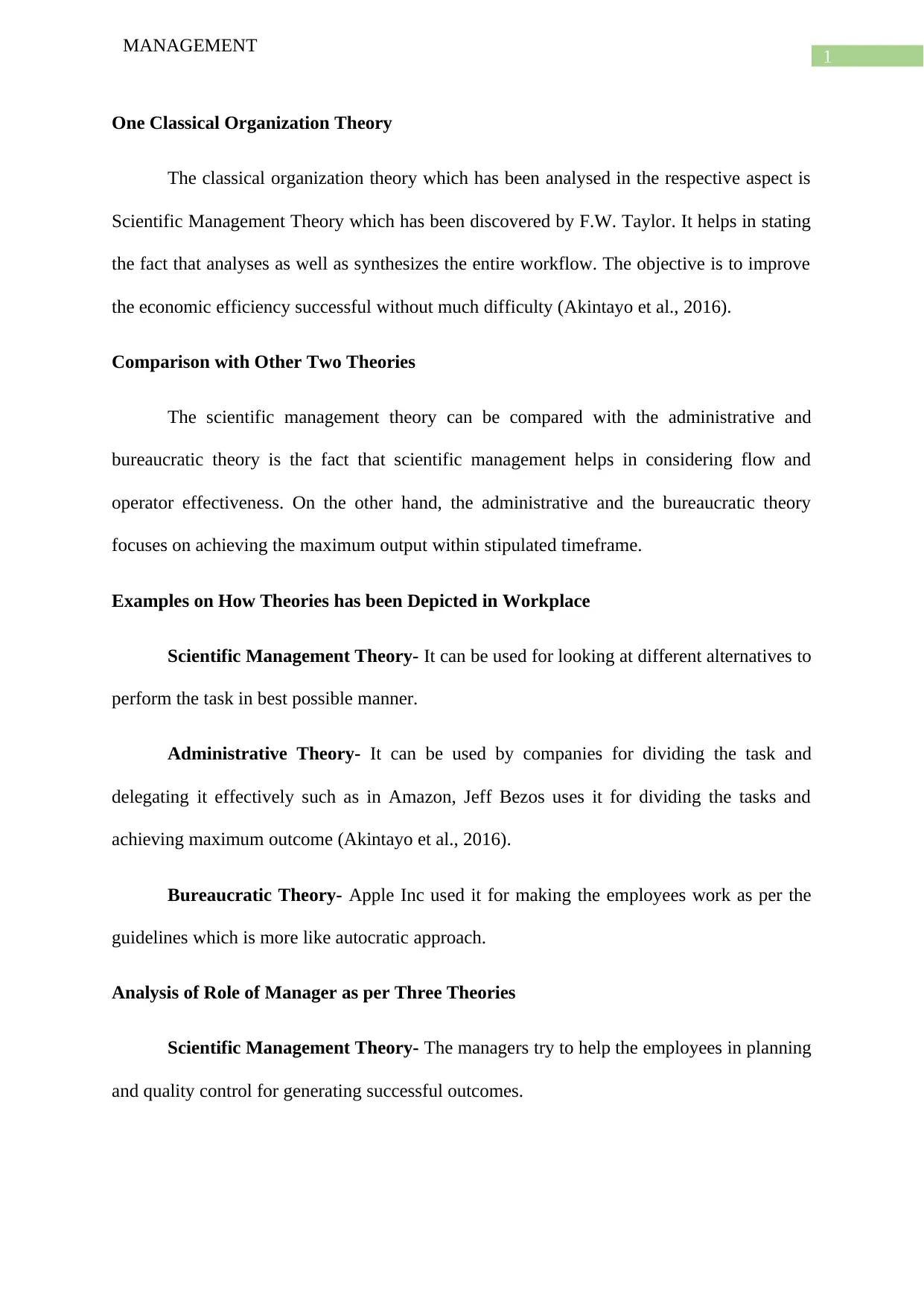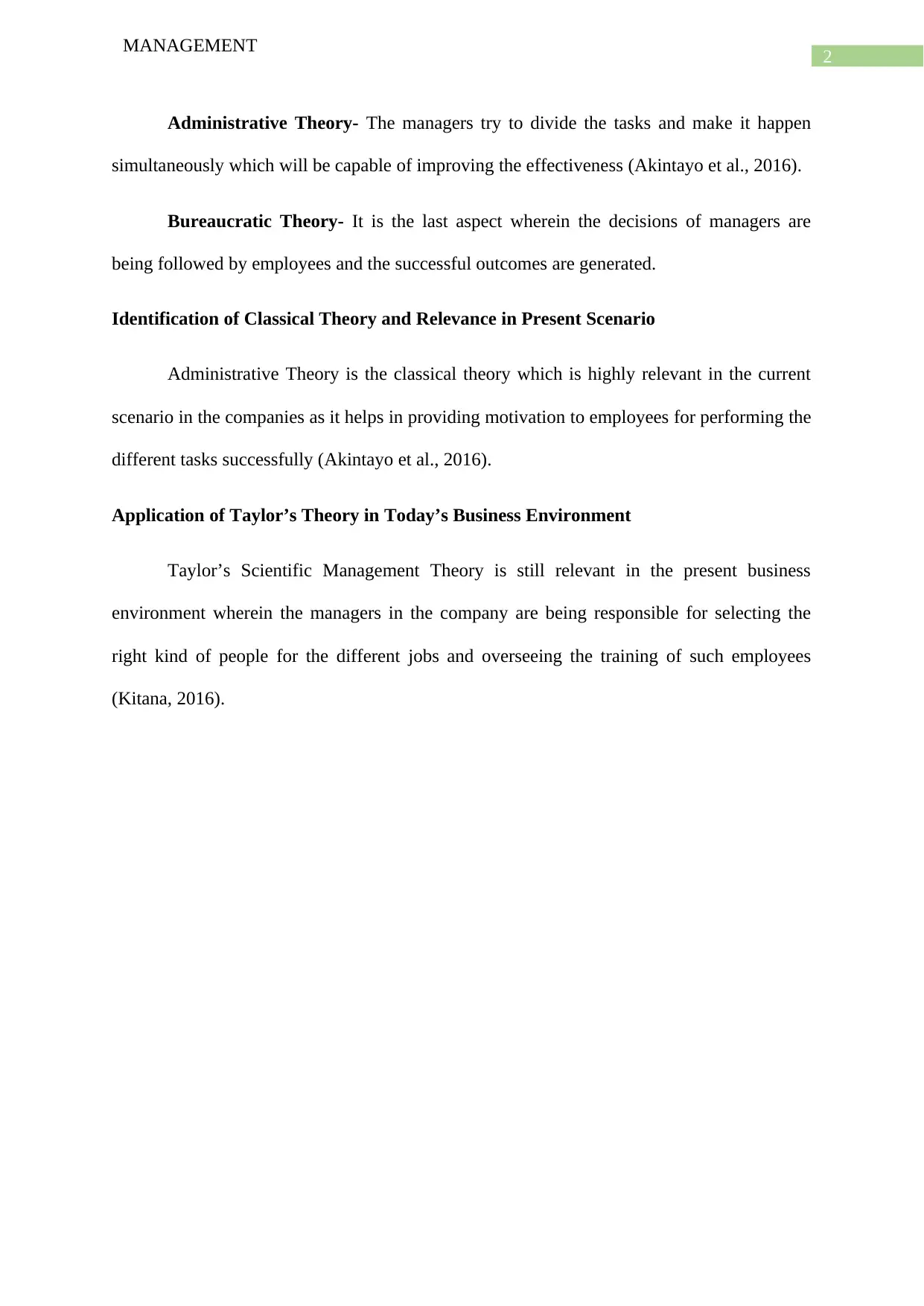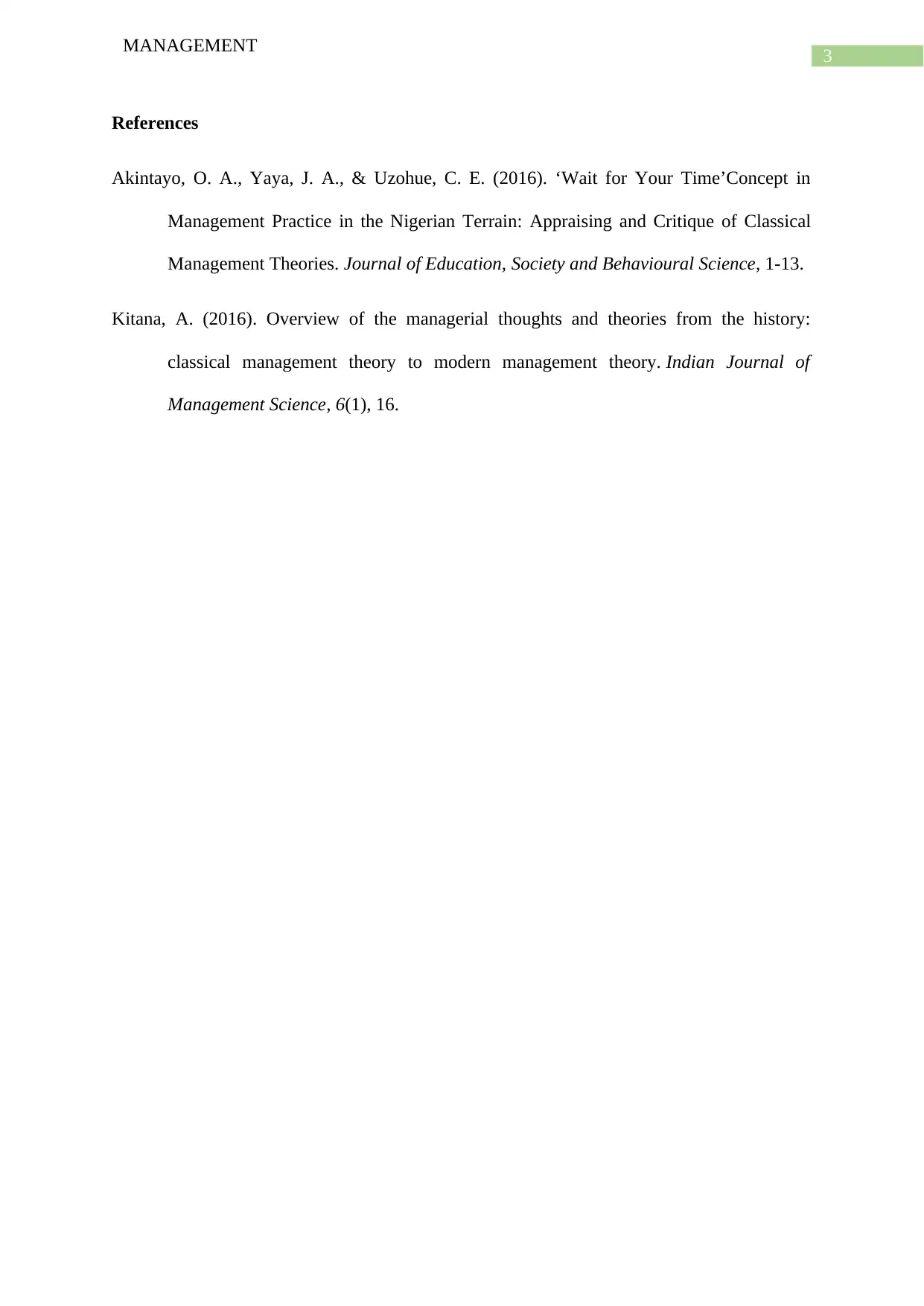Classical Management Theories: Analysis for BMGT 364 Course
VerifiedAdded on 2022/08/11
|4
|516
|41
Homework Assignment
AI Summary
This assignment provides an analysis of classical management theories, focusing on Scientific Management, Administrative, and Bureaucratic theories. It begins with an overview of the Scientific Management Theory by F.W. Taylor, comparing it to the Administrative and Bureaucratic theories, and highlighting their objectives and key differences. The assignment provides real-world workplace examples illustrating how each theory is applied, such as Amazon's use of administrative theory and Apple Inc.'s implementation of bureaucratic principles. Furthermore, it delves into the roles of managers within each theoretical framework, emphasizing their responsibilities in planning, quality control, task division, and decision-making. The assignment concludes by identifying Administrative Theory as highly relevant in the current business environment and discusses the continued application of Taylor’s theory in selecting and training employees. The assignment uses the provided references to support the analysis.
1 out of 4










![[object Object]](/_next/static/media/star-bottom.7253800d.svg)